Integrated Mathematical Oncology Major Students
Below are the Integrated Mathematical Oncology students who are a part of the larger integrated PhD Program.
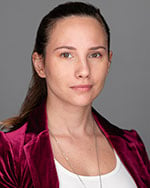 Agata
Agata
Major Professor: Undergoing rotations
 Ana
Ana
In the Rejniak lab, we use mathematical modeling and computational simulations to investigate the biomechanics of normal vs. tumor-like tissue morphogenesis, micro fluids in drug delivery, and biophysics of tumor microenvironment. In particular, I am interested in studying how the properties of the tumor microenvironment influence cancer cells’ decision-making. Specifically, my research focuses on the role of some immune cells, fibroblasts, metabolic conditions, and physicochemical properties of tumor stroma in promoting micro invasions in ductal carcinoma in situ (DCIS).
Major Professor: Katarzyna Rejniak, PhD
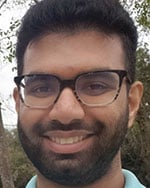 Anuraag
Anuraag
I'm a mathematical and theoretical evolutionary biologist with an interest in using rigorous mathematics to understand oncology, ecology, and the connections between them. My work revolves around developing mathematical tools to understand eco-evolutionary dynamics in a wide range of problems, from therapeutic resistance in cancer to the evolution of life on earth.
Major Professor: Joel Brown, PhD
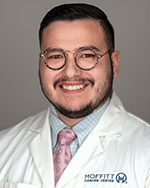 Ari
Ari
Major Professor: Undergoing rotations
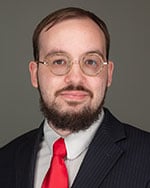 Daniel
Daniel
Daniel joined the Cancer Biology PhD program in 2020 in the Integrated Mathematical Oncology Department. He is using mathematical modeling to develop a Bayesian progression risk score, which predicts the probability that a patient will progress on treatment before their next scheduled visit.
Major Professor: Heiko Enderling, PhD, IMO
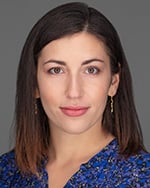 Malgorzata
Malgorzata
My research focuses on the evolution of resistance to targeted therapies in NSCLC. Specifically, I aim to develop mathematical and computational models to determine how this resistance emerges due to combinations of genetic and epigenetic factors, and how it can be prevented.
Major Professor: David Basanta, PhD
 Matthew
Matthew
My research interests lie at the intersection of ecology, evolution, and cancer. I utilize Hybrid Agent-Based Models (ABMs) and machine learning techniques to investigate how adaptive therapy can enhance treatment strategies for acute myeloid leukemia (AML) and multiple myeloma (MM). By bridging the fields of ecology, evolution, and translational cancer research, my work aims to shed light on the evolutionary dynamics of cancer cells and their interactions within the tumor microenvironment, ultimately contributing to more effective therapies.
Major Professor: David Basanta, PhD
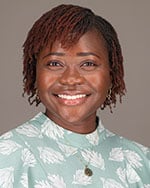 Phebe
Phebe
In the Brady-Nicholls lab, we are focused on improving patient care using accessible, minimally invasive biomarkers through the integration of mathematical modeling with the goal of understanding and fundamentally reducing disparities and improving patient-reported outcomes. Being broadly interested in the intersection of mathematics, oncology, and epidemiology, my research is currently focused on how circulating tumor DNA (ctDNA) can be utilized for treatment adaptation in patients with HPV+ Oropharyngeal Squamous Cell Carcinoma (OPSCC). To do this, I seek to develop patient-specific mathematical models based on tumor volume and frequently collected ctDNA as well as other patient-reported parameters using differential equation-based approaches and data-fitting techniques to understand patient progression and survival, leading to potential dose adaptation and de-escalation.
Major Professor: Renee Brady-Nicholls, PhD

Rafael
Research Interests: Mathematical Oncology
Major Professor: Alexander Anderson, PhD
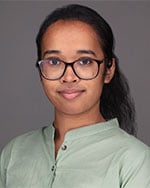 Ranjini
Ranjini
Cancer is driven by natural selection at a cellular level. Phenotypic heterogeneity within the tumor microenvironment enables the emergence of drug resistance and relapse. Understanding the genetic and developmental cues that lead to phenotypic variation is key to understanding cancer evolution. Under Dr. Joel Brown, I hope to understand cancer evolution through a mathematical lens and develop therapeutic regimens that can tackle this problem.
Major Professor: Joel Brown, PhD
 Rebecca
Rebecca
My research focuses on the immunological consequences of radiation, with the use of calibrated mathematical models of tumor growth and tumor-immune dynamics. Utilizing various theoretical analysis techniques and computational methods I will investigate whether harnessing these consequences could improve patient response to radiotherapy and immunotherapy.
Major Professor: Heiko Enderling, PhD
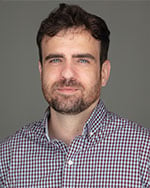 Thomas
Thomas
Thomas is a PhD candidate interested in evolutionary game theory (EGT). His work combines EGT and single-cell sequencing to understand how cell-cell interactions shape population structure in gastric cancers. Before coming to Moffitt, Thomas completed his undergraduate degree in Applied Mathematics at USF. With his PhD work, he hopes to contribute to a better understanding of how divergent populations within a tumor compete and cooperate while exposed to variable environments, such as DNA damaging therapies.
Major Professor: Noemi Andor, PhD
Integrated Mathematical Oncology PhD
